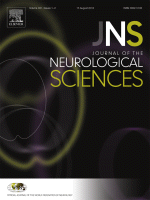 Salbutamol is a selective B2-adrenergic agonist, which has previously been described to be associated with partial improvement of myasthenia gravis and congenital myasthenic syndromes (CMS). In this study, the effect of salbutamol in five patients with Dok-7 CMS was analysed. Five patients (2 males and 3 females), with a mean age of 27±11.06years, who harboured c.1124_1127dupTGCC, p.G64R and/or p.S45L mutations in DOK7 gene were studied. Salbutamol was given at a dose of 2mg three times daily (6mg/day) to all patients. The response was assessed by QMG score at baseline, 3, 6, 9 and 12months; ADL-MG score and 6minute walk test at baseline and after 12months during follow-up clinic visits. The side effect profile of salbutamol was also evaluated. An increasingly positive response as measured by the QMG score after 3months of salbutamol treatment was observed. Improvement in specific subcomponents of the QMG score such as leg outstretched in 45° supine was most marked. In ADL-MG scores and 6minute walk test, comparison between baseline and after 12months revealed a clear beneficial response. Salbutamol was well tolerated in all patients. Salbutamol is an effective treatment in Dok-7 CMS. This study provides class IV evidence that salbutamol given at a dose 6mg/day improves function as measured by the QMG score, ADL-MG score and 6minute walk test.
Salbutamol is a selective B2-adrenergic agonist, which has previously been described to be associated with partial improvement of myasthenia gravis and congenital myasthenic syndromes (CMS). In this study, the effect of salbutamol in five patients with Dok-7 CMS was analysed. Five patients (2 males and 3 females), with a mean age of 27±11.06years, who harboured c.1124_1127dupTGCC, p.G64R and/or p.S45L mutations in DOK7 gene were studied. Salbutamol was given at a dose of 2mg three times daily (6mg/day) to all patients. The response was assessed by QMG score at baseline, 3, 6, 9 and 12months; ADL-MG score and 6minute walk test at baseline and after 12months during follow-up clinic visits. The side effect profile of salbutamol was also evaluated. An increasingly positive response as measured by the QMG score after 3months of salbutamol treatment was observed. Improvement in specific subcomponents of the QMG score such as leg outstretched in 45° supine was most marked. In ADL-MG scores and 6minute walk test, comparison between baseline and after 12months revealed a clear beneficial response. Salbutamol was well tolerated in all patients. Salbutamol is an effective treatment in Dok-7 CMS. This study provides class IV evidence that salbutamol given at a dose 6mg/day improves function as measured by the QMG score, ADL-MG score and 6minute walk test.
